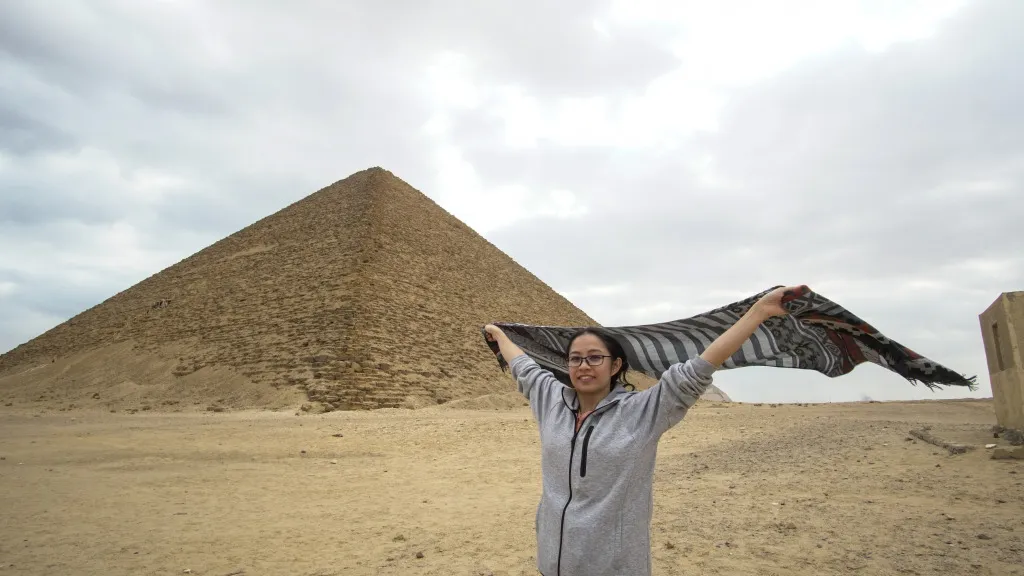Before Covid-19 struck, a competition was about to heat up. March 2020 – around the time that African countries started to close their borders – would have been the time when African tourism agencies would be gearing up to market their top destinations to Chinese tourists, targeting the October national holiday or “Golden Week”. Golden Week is one of two major national Chinese annual holidays alongside Chinese lunar new year, which takes place in either January or February.
Chinese tourists are really worth targeting, given the country’s income growth. Between 2010 and 2019, the number of Chinese travelling abroad every year trebled to 155m, accounting for over 10% of all outbound tourism globally. Importantly, around 8.5% of these trips were made during Golden Week and lunar new year – making them a predictable opportunity to attract outbound tourists from a country where personal annual leave is limited outside the other most important global holidays in July/August and December.
Furthermore, Chinese tourists spend more than others – the WTO estimates almost $1,000 per trip, double that of US tourists.

It’s a no-brainer to try to attract Chinese sightseers to African destinations. Hence entry requirements for Chinese nationals have gradually been relaxing across the continent. In Morocco, Chinese arrivals reportedly increased by 378% in the six months after Chinese nationals were exempted from entry visas in 2016.
Chinese nationals can now arrive in 27 African countries without previously applying for a visa. Some countries, such as Angola and South Africa, have also made it easier for Chinese business travellers to obtain long-term multiple-entry visas.
However, since Covid-19, tourists have become scarce. While Africa as a whole generally attracts few global tourists – just 4% of the world’s total – several countries are dependent on tourism, such as Morocco, Mauritius, Seychelles, Tunisia and Tanzania. Overall, 24m people on the continent rely on tourism for their jobs.
Low tourism has therefore had a huge effect on Africa, despite the fact that among the most dependent are countries that have best managed Covid-19 globally. For instance, six of the 10 most tourism-dependent countries in Africa have recorded under 10,000 cases since the pandemic began. Mauritius has recorded just 15 Covid-19 deaths to date, Seychelles just 25.
However, despite this achievement, their economies are suffering. In Seychelles, tourism revenues declined by 61% in 2020, and as a result the country’s 2021 budget has had to be slashed by 10%.
Putting Africa on the Chinese tourism map
The problem with Chinese tourists is that, even before Covid-19, the African continent was hardly on the map. As already noted, Africa attracts a very small proportion of the world’s tourists, and of this, China is an even smaller proportion.
In 2018, while estimates vary, data suggests that Africa attracted less than 1 of every 100 Chinese tourists. That puts Chinese tourists at close to par with the numbers of British tourists entering Africa every year – even though fewer British people travel abroad. Or, to put it differently, there are at least three American and two French tourists for every Chinese tourist visiting Africa.
So, what now? African countries are obviously desperate to restart tourism. As an example, Mauritius has become the first African country to launch a so-called “digital nomad” long-term tourist visa – including a vaccine in the arrival package.
Seychelles, which already doesn’t require visas for Chinese or any other travellers, is vaccinating its population as fast as possible in an effort to create herd immunity – over 50% of its inhabitants were fully vaccinated by late April.
But should African countries resume the hard work of trying to attract Chinese tourists specifically, and what would that entail?
On the one hand, Africa is becoming more popular in Chinese minds. In 2018, Chinese travel agency Trip.com reported a 70% increase in the purchase of Africa-related tourism products in the first seven months of 2018. Also in 2018, Hurun Report’s The Chinese Luxury Traveller named Africa as the region with the biggest increase in interest from high-net-worth Chinese tourists.
Chinese tourists are interested in pyramids in Egypt (the most popular African destination for Chinese nationals in 2018), safaris in South Africa (the third most popular) and beaches in Mauritius and Kenya.

Advantages such as five Ethiopian Airways termini in China, as well as a centre in Addis Ababa to facilitate visas to other African nations, have also made Ethiopia popular, positioning it as the gateway to the rest of Africa for Chinese business travellers and regular tourists. In the future, China’s strong and consistent handling of Covid-19 and continued economic growth could make it an important and reliable source of travellers.
On the other hand, just as China’s success in addressing Covid-19 domestically has led to low take-up of vaccines, that success, combined with onerous processes for quarantine on return also means a great deal of reticence when it comes to international tourism. For instance, at the time of writing, re-entry to Beijing for Chinese nationals requires 14 days in isolation in a government-appointed hotel, plus seven days home quarantine.
Making the right choices
These opportunities combined with new challenges have two implications.
First, Africa’s tourist-dependent economies need to make the sector a priority in government-to-government negotiations. No quarantine restrictions will be relaxed or non-Chinese vaccines accepted without Chinese government approval.
If Egypt, Rwanda, Kenya or any others want Chinese luxury or business tourists back, the Chinese government is the first stop, armed with clear information on their internal Covid-19 management processes and results, and clear proposals as to what some sort of mutual recognition of quarantine, vaccination processes and standard operating protocols look like in practice – including for specific “protected areas” or “approved leisure or business destinations” within the African countries if necessary.
Second, Africa’s tourist dependent economies need to begin the marketing they were about to launch in 2020 now – targeting Golden Week or the 2022 Chinese new year. In doing so, they need to focus on the unique experiences tourists will get in comparison to the competition from Chinese domestic tourist sites, which themselves offer a great deal, given China’s size and variety.
For instance, Chinese tourists are unlikely to find digital nomad visas attractive, but they may find multi-destination, multi-year visas more interesting, especially when it comes to business. Strong handling of Covid-19 will also be a plus, and should be marketed as such, emphasising the relative safety of a beach or other leisure or business tourism destination. And of course, luxury or unique accommodation, and plenty of food and relaxation should be emphasised.
Increasing tourism in Covid-19 times is no doubt a huge challenge. But for some African countries, it is necessary for both revenue and jobs. Using this opportunity to focus on Chinese tourists may well be a golden choice.
Hannah Ryder is the CEO of Development Reimagined, a pioneering African-led international development consultancy based in China.
Rosie Wigmore is a research analyst at Development Reimagined, and specialises in global health issues.
Want to continue reading? Subscribe today.
You've read all your free articles for this month! Subscribe now to enjoy full access to our content.
Digital Monthly
£8.00 / month
Receive full unlimited access to our articles, opinions, podcasts and more.
Digital Yearly
£70.00 / year
Our best value offer - save £26 and gain access to all of our digital content for an entire year!
 Sign in with Google
Sign in with Google 



